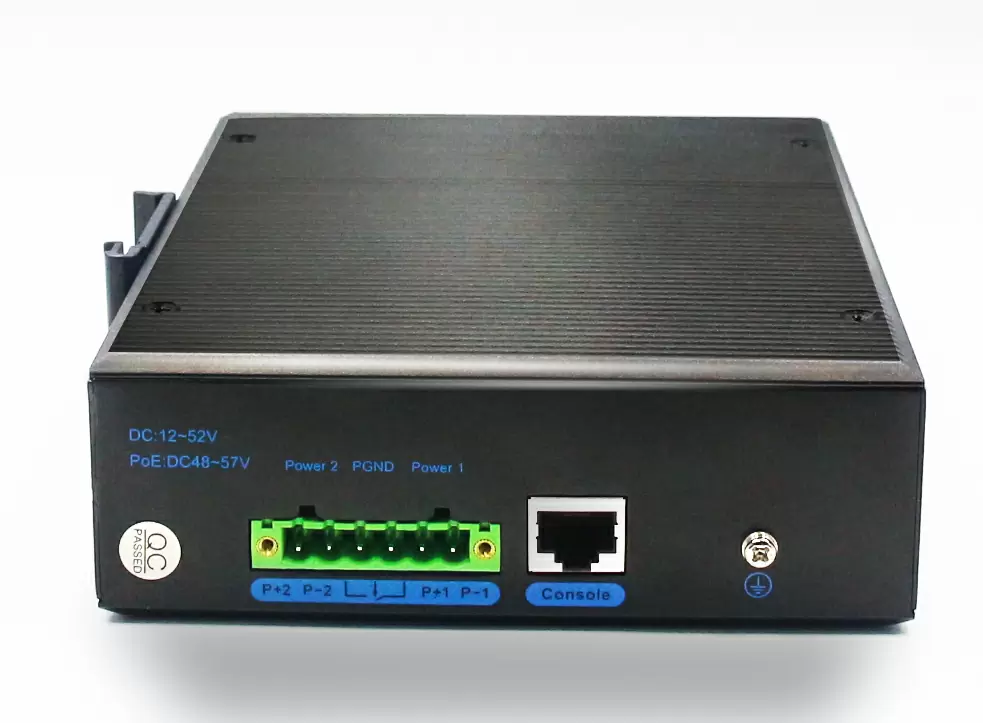.

Do you know about L3 industrial Ethernet switches? These advanced networking devices play a crucial role in modern industrial automation systems. Designed to provide high-performance and reliable connectivity, L3 industrial Ethernet switches offer numerous benefits for businesses operating in industrial environments.
1. The Basics of L3 Industrial Ethernet Switches
L3 industrial Ethernet switches, also known as Layer 3 switches, are specialized networking devices that operate at the third layer of the OSI model. They are built to handle the complex requirements of industrial applications, such as factory automation, process control, and energy management systems.
Unlike traditional Layer 2 switches, L3 industrial Ethernet switches have the ability to route IP traffic, making them suitable for large-scale networks with multiple subnets. They offer advanced features like quality of service (QoS), virtual LANs (VLANs), and security protocols for enhanced network management and data protection.
2. Key Features and Advantages of L3 Industrial Ethernet Switches
L3 Industrial Managed Ethernet Switch come with a wide range of features that make them ideal for industrial settings. Here are some key advantages:
- High Performance: L3 switches provide fast data forwarding rates, allowing for real-time monitoring and control in industrial applications.
- Advanced Routing Capabilities: The ability to route IP traffic enables L3 switches to handle complex network topologies and support hierarchical structures commonly found in industrial networks.
- VLAN Support: L3 switches allow for the segmentation of networks into smaller, isolated VLANs, improving network security and performance.
- Redundancy and Resilience: Industrial networks require high availability and fault tolerance. L3 switches offer redundant link support, spanning tree protocol (STP), and link aggregation capabilities to ensure uninterrupted operations.
- Enhanced Security: L3 switches provide robust security features like access control lists (ACLs), port security, and virtual private networks (VPNs) to protect sensitive data and prevent unauthorized access.
3. Use Cases and Applications of L3 Industrial Ethernet Switches
L3 Industrial Managed Ethernet Switch find extensive applications across various industries. Some common use cases include:
- Factory Automation: L3 switches enable seamless communication between different parts of a manufacturing facility, ensuring efficient production processes and minimizing downtime.
- Intelligent Transportation Systems: L3 switches are used in traffic management systems, railway networks, and smart city projects to enable real-time monitoring, control, and data analysis.
- Energy Management: L3 switches play a crucial role in smart grid networks, enabling efficient energy distribution, power monitoring, and load balancing.
- Oil and Gas Industry: L3 switches provide reliable networking solutions for offshore platforms, pipelines, and refineries, facilitating remote monitoring, control, and data acquisition.
4. Considerations when Choosing L3 Industrial Ethernet Switches
Before selecting an L3 industrial Ethernet switch for your industrial network, consider the following factors:
- Scalability: Ensure that the switch can handle the growing demands of your network, including the number of devices and the amount of data traffic.
- Reliability: Look for switches with redundant power supplies, hardened enclosures, and wide temperature ranges to withstand harsh industrial environments.
- Security: Evaluate the security features offered by the switch, including support for encrypted communication, secure management interfaces, and access control mechanisms.
- Management and Monitoring: Consider switches with robust management capabilities, such as remote configuration, monitoring, and diagnostics, to simplify network maintenance and troubleshooting.
Conclusion
In conclusion, L3 industrial Ethernet switches are powerful networking devices designed for industrial applications. With their advanced features, robust performance, and reliability, they enable seamless communication and efficient operations in industrial automation systems. When choosing an L3 switch, consider factors like scalability, reliability, security, and management capabilities to ensure optimal performance for your industrial network.


